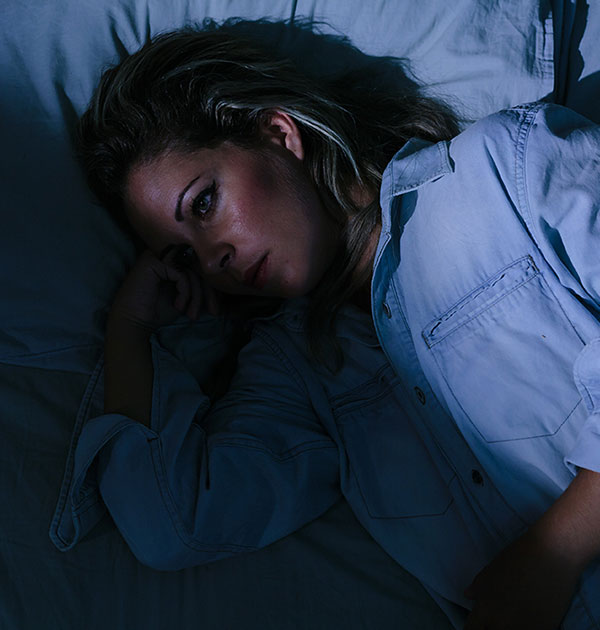
Ahhh, sweet sleep. You had a hard day, but are finally done. You’re ready to call it a night, and crawl into bed for a good eight hours of rest. You close your eyes, ready to drop off, but somehow your mind won’t quit.
If fact, it feels like your brain is on rocket fuel, bouncing around from thought to thought, and any expectation of sleep falls by the wayside.
If this sounds like you, you’re not alone. Sleeplessness in one form or another is a problem for over 60 million Americans. It’s frustrating and can affect the quality of your life.
Insomnia can appear in a variety of ways. Falling asleep is a problem for many folks, but staying asleep can also be an issue.
Many people are able to nod off easily, only to wake a few hours later or in the early morning, unable to get back to sleep. For others, the quality of their sleep is so disrupted that they struggle to fall asleep and wake early, or don’t really sleep much all night long.
There are a number of underlying causes of poor sleep, including stress, diet, illness, and prescription medications. In addition, sleep habits can play a role, too. A bedroom that’s too warm or too bright can be a problem, as can too much screen time right before bed.
Standard Western treatments for sleep often include a prescription medication. There are a wide variety of drugs that will do the job for most people, but with a couple of caveats. Some of these medications are habit forming and can be very difficult to wean from. In addition, most medications will help you sleep, but the quality of your sleep is not the same as your natural sleep cycles. For that reason, a number of people have turned to acupuncture to help with their sleep issues. Research done in this area suggests that it’s a good idea.
In a 2013 study, Chinese researchers documented that subjects who were treated with acupuncture reported higher levels of sleep quality and vitality and lower levels of daytime dysfunction and sleepiness than patients who were treated with a sleep medication or sham acupuncture.
The mechanism by which acupuncture works for insomnia is not completely understood. However, it is known that acupuncture affects brain chemistry to lower stress and anxiety in patients, which is a common source of sleep problems. In addition, there is research that suggests that acupuncture raises melatonin, a hormone that induces evening sleepiness.
It’s important to know that there are a number of underlying factors that may be causing your sleeplessness. If you seek out an acupuncturist for treatment, they will do a complete evaluation to understand the personality, or pattern, behind your insomnia.
They will then develop a treatment plan, often combining acupuncture with other therapies, such as herbs, dietary therapy, and lifestyle changes to help you get a better night’s sleep. You don’t have to go through life exhausted and irritable from lack of sleep. – Contact our office today for a free consultation to see how we can help you sleep better.
